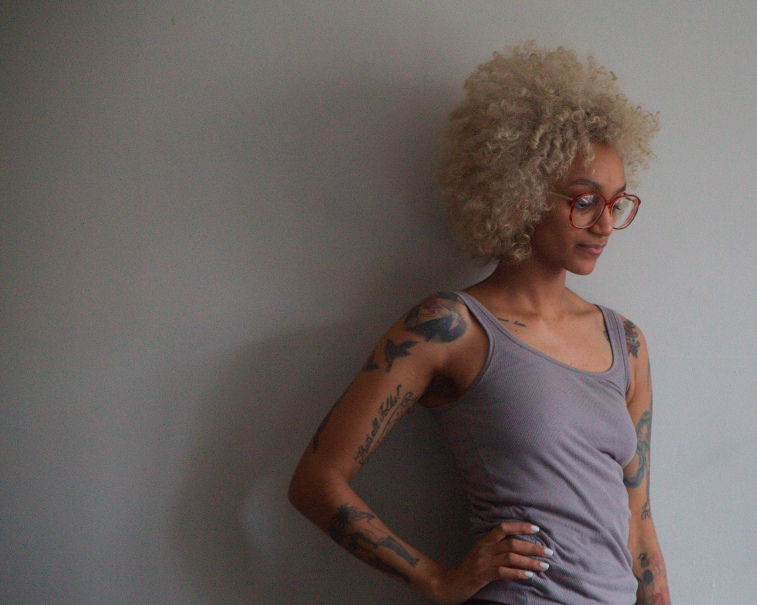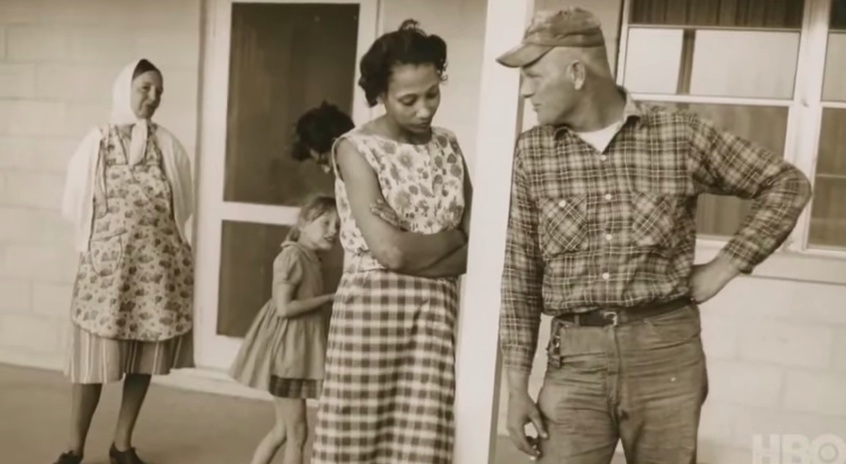Loving v. Virginia and the Fight for Marriage Equality

By:
Same-sex marriage has been a hotbed of contention for a while now and is still banned in 13 states. The bans may not last for long, though, as the U.S. Supreme Court is set to make a decision on marriage equality any day. However, this isn’t the first time the Supreme Court will weigh in on marriages in America. Before Obergefell v. Hodges, there was the landmark case Loving v. Virginia, and Ken Tanabe, founder of Loving Day, wants us all to know about it.
“I found out about Loving v. Virginia kind of by accident,” Tanabe told ATTN:. “I didn’t learn about it in school. My parents didn’t really talk about it. It was just sort of a random discovery and I thought, this should be really well known.”
And it should. The Loving decision, which was explored in the HBO Documentary "The Loving Story," was a critical civil rights case that struck down some of the final vestiges of the Jim Crow era South and its infamous “separate but equal” legal doctrine. It is also one of the most important legal precedents for same-sex marriage.
 HBO
HBO
Loving v. Virginia
In 1958, interracial marriages were illegal in nearly half the states, including Virginia. According to the state’s 1924 Racial Integrity Act—legislation concerned with maintaining purity of the races — Virginians were divided into strict racial categories. Marriages between a “white” and “nonwhite” person were banned. So when two Virginians-- Mildred Jeter, who was part Black and part Native American, and Richard Loving, who was white-- wanted to marry, they had to travel to Washington, D.C. to do so. Washington was to Mildred and Richard what Massachusetts was to many gay and lesbian couples not too long ago: a place free of discriminatory marriage regulations.
The couple married on June 2, 1958, and returned to Virginia to begin a life together. As it turned out, they wouldn’t be able remain in Virginia for long. A few weeks after their wedding, a sheriff and two deputies barged into the Lovings’ bedroom in the middle of the night. Mildred recalled the night in documentary “The Loving Story:”
“They asked Richard who was that woman he was sleeping with? I say, I'm his wife, and the sheriff said, not here you're not.” That night, Mildred and Richard were hauled off to jail for violating anti-miscegenation laws.
The Lovings’ marriage wasn’t recognized in Virginia even though it was performed legally in Washington, D.C. Not only was their marriage considered invalid, but according to Virginia Law, the Lovings were committing a felony. To avoid a one-year jail sentence, the couple agreed to leave the state of Virginia and not return together for 25 years. Effectively banished from their home state, they moved to Washington and had three children there. They were forced to do what they had always hoped to do in Virginia, elsewhere.
 HBO
HBO
Eventually, the Lovings came to miss their family, and Virginia. They weren’t happy in exile. In 1963, Mildred wrote to Attorney General Robert F. Kennedy asking for help. Kennedy referred her to the American Civil Liberties Union and the ACLU took the Lovings’ case, which moved up the ranks until it was before the Supreme Court. Finally, on June 12, 1968, the Lovings won. The Supreme Court declared all anti-miscegenation laws unconstitutional, effectively legalizing interracial marriage across the country.
On behalf of the unanimously ruling court, Chief Justice Earl Warren declared that “marriage is one of the ‘basic civil rights of man,’ fundamental to our very existence and survival. [...] Under our Constitution, the freedom to marry, or not marry, a person of another race resides with the individual and cannot be infringed by the State.”
Loving Day
The Loving decision did more than just rid America of its last major piece of state-sanctioned segregation. It promoted love and acceptance for all-- something that extends beyond Black and white.
"My dad is from Japan, and my mom is from Belgium... So myself, as a person of multi-ethnic heritage, the Loving decision really resonated with me, because I realized I might not even exist if it weren't for this decision," Tanabe told ATTN: about his interest in the case.
In fact, Loving v. Virginia made such an impact on Tanabe that he decided to focus on it for his graduate thesis project while studying at Parsons New School for Design in New York City.
He created a campaign around Loving v. Virginia by developing a concept, branding, and graphic materials. He launched a website as well, LovingDay.org, and since then it has become a project focusing on education and commemoration for the landmark Supreme Court decision with global reach. “The first Loving Day celebration in New York was just picking a bar. I just picked a bar. That was it. And 100 people came.” Now, Loving Day is celebrated in cities nationwide and internationally, collectively forming the world’s largest network of multiethnic community celebrations.
“Loving Day’s mission is about fighting prejudice through education," Tanabe said. Loving Day also aims to show people "that not only is there a community that they can join and learn from and connect with, but also that they can be a force in creating that community wherever they live.”
Marriage Equality
In 1958, a whopping 94 percent of Americans disapproved of interracial marriages. By 2013, that number had dropped severely to 11 percent.
When legalized interracial marriage was in its infancy, it was probably impossible to dream of a country that celebrates interracial relationships and multi-ethnic identities. Now, a little more than 50 years later, Loving Day does exactly that.
Mildred Loving wrote of that phenomena in a letter prepared for the 40th anniversary of Loving v. Virginia. “[...] I have lived long enough now to see big changes. The older generation's fears and prejudices have given way, and today's young people realize that if someone loves someone they have a right to marry.”
Mildred’s sentiments extended to all people.
“I am proud that Richard's and my name is on a court case that can help reinforce the love, the commitment, the fairness, and the family that so many people, Black or white, young or old, gay or straight seek in life. I support the freedom to marry for all. That's what Loving, and loving, are all about.”
With a backdrop and legal precedent such as that, it seems unlikely that bans against gay marriage will last. Marriage equality for all is inevitable. Thanks, in large part, to Loving v. Virginia, and the equality promoted through projects such as Loving Day.
